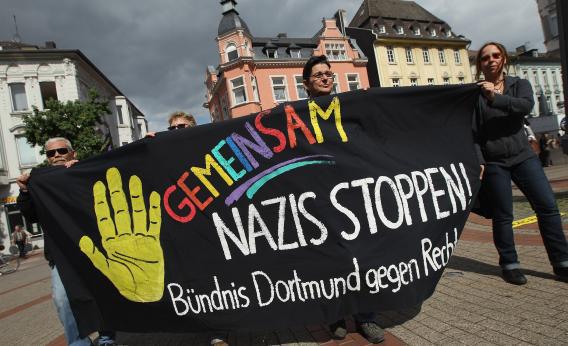Twitter incurred Internet wrath when it announced in January that it would begin working with governments to selectively censor tweets in some countries. Activists envisioned the microblogging site cooperating with Middle Eastern despots or the Chinese goverenment to silence dissenters.
By coincidence or design, however, the first instance of Twitter applying its new censorship policy is one that seems likely to provoke outrage from only the most ardent free-speech advocates. On Wednesday night, Twitter general counsel Alex MacGillivray tweeted that the site had agreed to block the account of a neo-Nazi group called Besseres Hannover (“Better Hanover”) in response to a demand from the German government. He included links to both Twitter’s censorship policy and the official request from the German police, which notified the San Francisco-based company that Besseres Hannover “is disbanded, its assets are seized and all its accounts in social networks have to be closed immediately.” It asked that Twitter block its account and prevent it from opening alternate accounts.
Under the policy, the group’s tweets will appear to German users as greyed-out boxes with the words “@Username withheld” and “This account has been withheld in: Germany.” That’s part of Twitter’s effort to be transparent about its censorship, so that tweets don’t just mysteriously disappear. The company has maintained from the start that it imposed the policy not to help governments censor their citizens, but to give it a way to comply with various countries’ laws without having to shut down entirely there.
Interestingly, one thing that mitigated the initial anger over Twitter’s policy was that the company seemed to have intentionally made it easy to circumvent. Does that mean Germans can still access Bresseres Hannover’s tweets if they really want to? I’ve asked Twitter for comment and will update if they respond.
